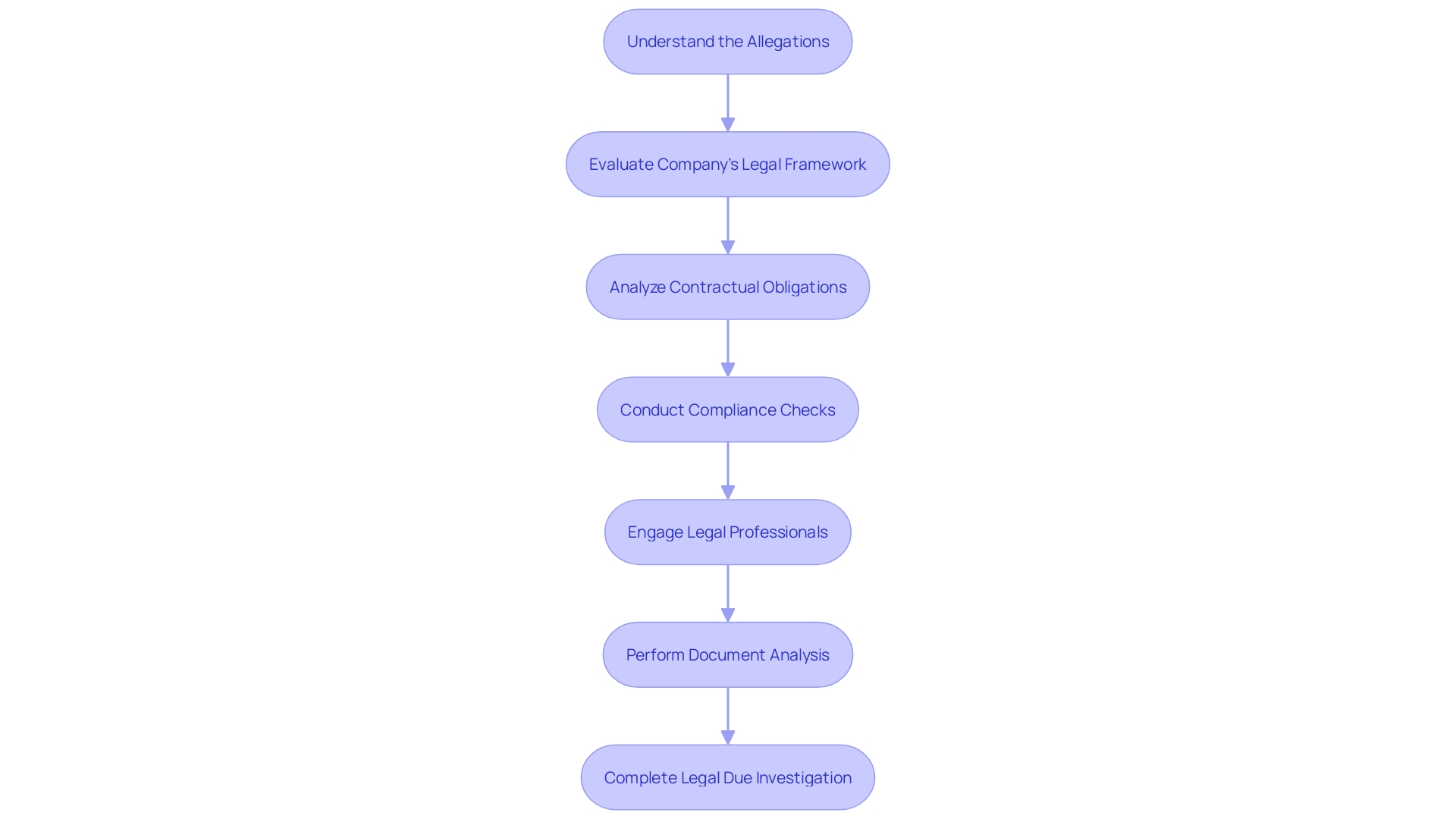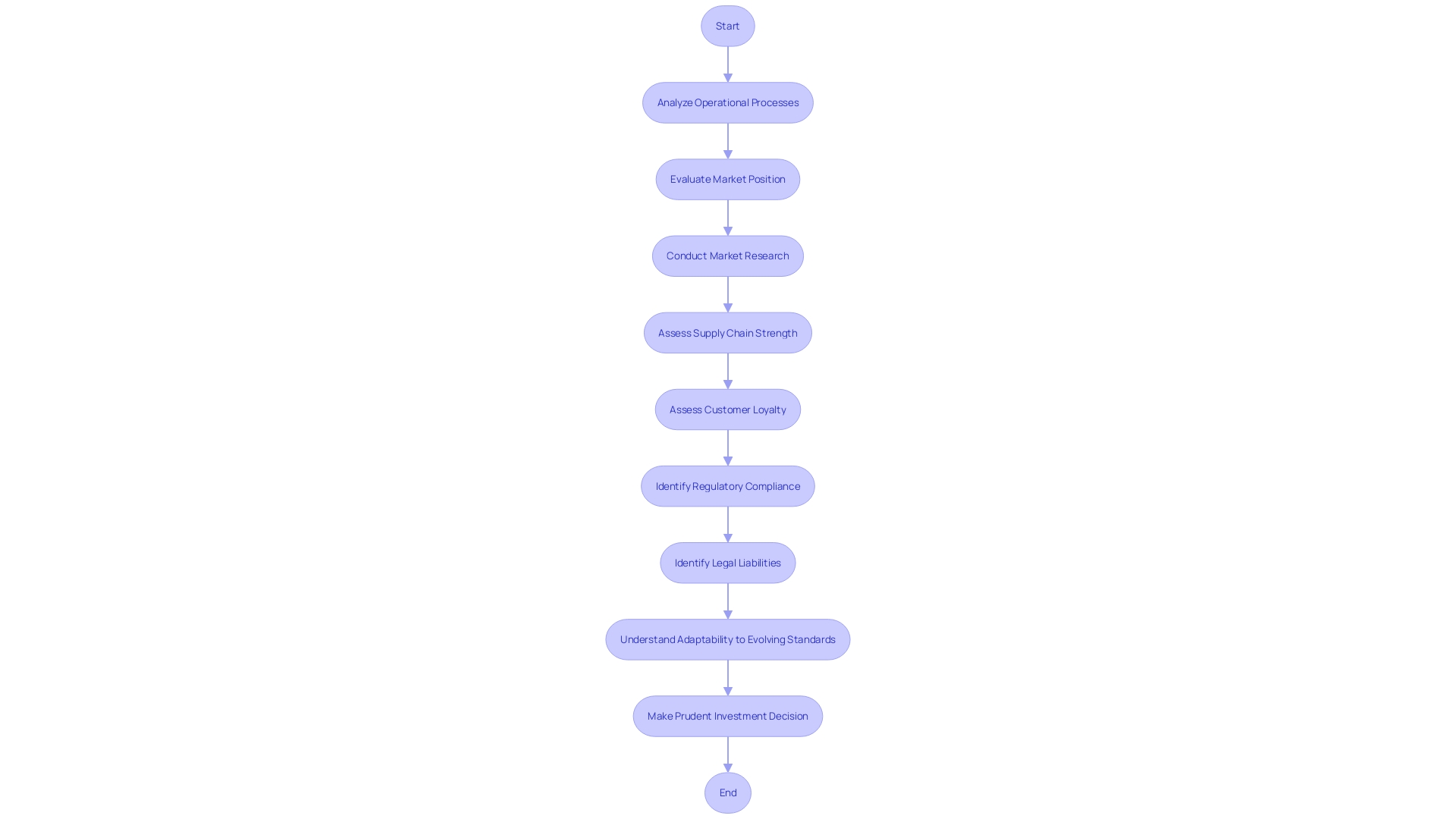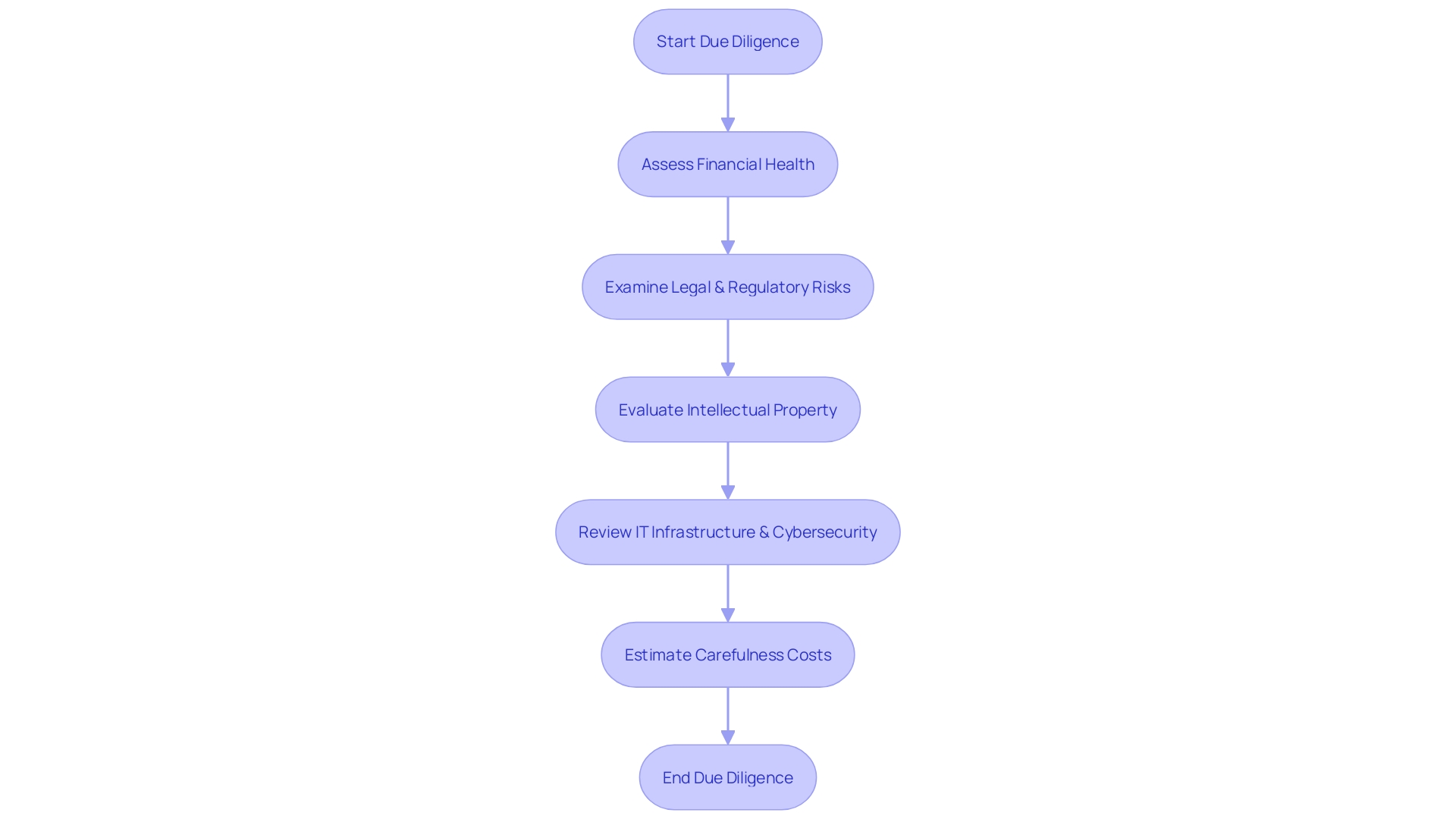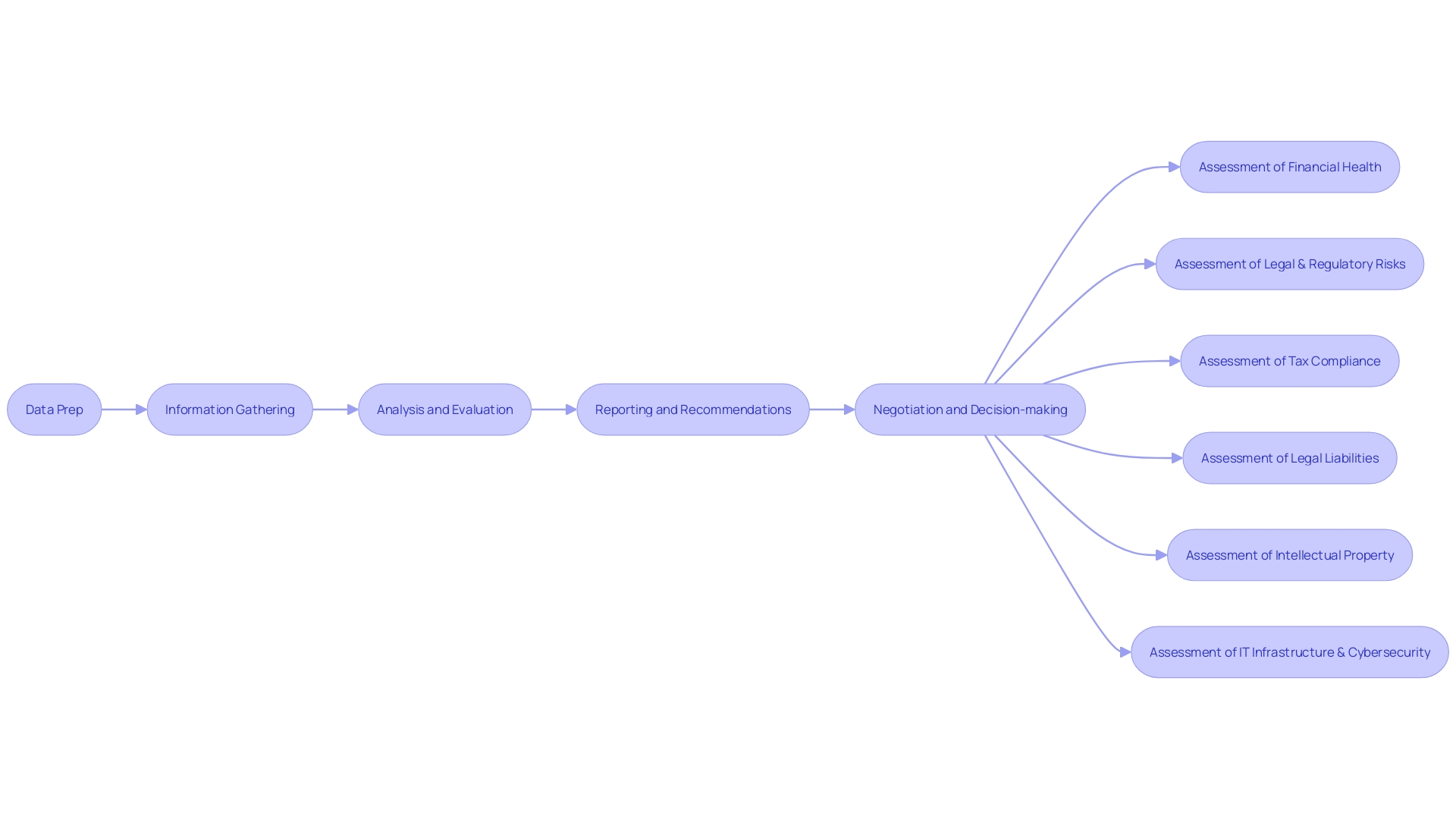Introduction
Financial due diligence is a critical process that ensures investments are sound and potential risks are identified. It goes beyond assessing a company's financial health and encompasses legal, regulatory, and operational aspects. Thorough due diligence can uncover issues like accounting practices or failed IPOs, highlighting its importance in assessing the viability of business models.
The costs of due diligence can vary depending on factors such as industry standards and safety measures. Legal due diligence involves assessing a company's legal standing, while operational and market due diligence examines the company's daily workings and market position. Various factors influence the costs of due diligence, including transaction complexity and the scope of the investigation.
Understanding the refundability of due diligence fees is crucial, as they are generally non-refundable but renegotiations can occur in certain circumstances. Due diligence is essential in business transactions as it provides valuable insights, informs negotiation strategies, and safeguards against reputational and financial damage. A thorough valuation, informed by financial analysis and due diligence, is key to securing a transaction that accurately reflects the business's worth.
Ultimately, due diligence is a strategic tool that equips businesses to make informed decisions and fortify themselves against risks.
What is Due Diligence?
Financial due diligence is a multi-faceted examination aimed at ensuring that an investment is sound and that potential risks are identified and mitigated. It's not just about the financial well-being of an organization but covers a broader range, including legal, regulatory, and operational facets. Consider the case where Archer Daniels Midland's CFO was placed on leave, impacting the company's stock due to concerns over accounting practices. This underscores the importance of thorough due diligence, which could have potentially uncovered these issues earlier.
The process involves a painstaking review of financial statements, assets, debts, cash flow, and projections, alongside a legal and regulatory review, particularly for industries that are heavily regulated. Tax compliance is another critical area, involving the scrutiny of returns, audits, and agreements. Furthermore, the evaluation of a corporation's legal obligations, encompassing collaborations and licensing contracts, is crucial to comprehend the entire picture.
The importance of thorough investigation resonates with the increasing risk of catastrophic events, such as wildfires in California, where the cost and effectiveness of risk mitigation strategies are paramount. Likewise, companies such as WeWork have witnessed a sharp decline in their worth after an unsuccessful initial public offering and possible insolvency, underscoring the importance of thorough investigation in evaluating the feasibility of business models and extended lease agreements.
It's crucial for businesses to avoid neglecting proper valuation during the sale process, as overestimation or underestimation can adversely affect the outcome. Hiring a valuation professional can provide an objective analysis, factoring in financials, customer base, and industry trends to determine a fair market value.
A poignant quote by Daniel J. Boorstin emphasizes the importance of organizing thoughts and inviting constructive criticism, a principle that applies to the carefulness process as well. It's about sifting through the 'ninety percent of everything that is crap,' as Ted Sturgeon pointed out, to identify the ten percent that holds true value.
In the realm of emerging technologies, like frontier AI labs or crypto, the significance of thorough investigation cannot be downplayed. With the words of Vivek Ramaswamy, a proponent of crypto and freedom of speech, it's clear that new industries also require meticulous analysis to navigate the multichain world and avoid surveillance pitfalls.
Data visualization statistics also have a part to play in due attentiveness by offering insights and clarity into intricate data, which is especially pertinent for Llcs and businesses in tech sectors. The compiled statistics and research on data visualization can inform strategic decisions and day-to-day operations, emphasizing the direct and indirect impact thoroughness has on businesses.

Types of Due Diligence Costs
The multifaceted process of due diligence goes beyond a mere review, encompassing a comprehensive investigation into the operations of an organization. It includes an assessment of financial statements, assets, liabilities, cash flow, and projections, which are vital to understanding the financial health of the target entity. Legal and regulatory compliance, particularly in industries subject to stringent regulations, is scrutinized to identify any potential legal risks. This thorough examination extends to the company's adherence to tax laws, involving a review of tax returns, audits, and related agreements.
While conducting a thorough investigation, it is essential to assess the expenses associated with reducing identified risks. These costs can be as variable and unpredictable as the risks themselves, influenced by factors such as industry standards, public perception, and the economic implications of safety measures. For instance, the utility industry in California has faced increasing reputational risks and higher electricity rates as a consequence of extensive safety measures against catastrophic wildfires.
In the realm of mergers and acquisitions, contracts are complex and demand close attention. The extensive collection of merger agreements from the course of two decades emphasizes the continual development and significance of thorough investigation in contemporary markets.
Additionally, thorough investigation must take into account the possibility of legal responsibilities, such as collaborations and licensing contracts, that may have important monetary consequences. As observed in the instance of TCS and Transamerica, having the ability to access crucial IT systems and possessing an in-depth understanding of proprietary solutions can result in intricate legal dynamics, highlighting the importance of thorough care in transactions that involve technology and intellectual property.
Thorough investigation is the foundation for investors and businesses alike to identify and address risks, ensuring informed decisions that protect monetary interests. Therefore, the expenses involved in thorough research are investments in the future stability and prosperity of an organization.
Financial Due Diligence Costs
Thorough due investigation is a crucial element in any business deal, going well beyond the simplicity of an audit to encompass a comprehensive examination of an organization's operations. This vital procedure entails analyzing statements, while also examining assets, liabilities, cash flows, and future projections to guarantee a comprehensive comprehension of the organization's fiscal state. The effort put into conducting such thorough investigation usually covers the expenses of specialized external advisors, like auditors or financial consultants, each contributing their expertise to the evaluation of different risk areas. These can range from legal and regulatory compliance, particularly in industries under tight regulatory scrutiny, to the intricacies of tax obligations, including the examination of past tax returns, audits, and related agreements. The thorough investigation process also assesses potential legal liabilities, intellectual property holdings, and even the strength of a company's IT infrastructure and cybersecurity measures, all of which can greatly affect the organization's valuation and the result of the transaction. In line with the Financial Conduct Authority's (FCA) call for transparency, breaking down these costs aids in clarifying the investment and ensuring that careful efforts are both thorough and cost-effective, avoiding the distortions that bundled costs can create. As the AIC iterates, understanding and considering these costs is crucial for every investor, with the industry's substantial assets underscoring the significance of careful financial due care in safeguarding investments.
Legal Due Diligence Costs
Navigating the intricacies of legal due investigation is a vital stage in the acquisition process, entailing thorough evaluation of a target organization's legal standing and potential risks. This intricate task demands a thorough examination of the company's legal framework, contractual obligations, and compliance with the prevailing laws and regulations. The expenses for such careful examination can vary greatly and usually include charges for legal professionals, thorough document analysis, and strict compliance checks.
An important case that highlights the significance of thorough legal investigation involves the high-stakes patent litigation between Masimo Corporation and Apple Inc. This case exemplifies the intricate nature of legal disputes, particularly when it involves sophisticated technology and extensive intellectual property considerations. The '648 patent case, with its exhaustive prosecution history and a vast array of prior art, demonstrates the necessity for comprehensive legal scrutiny. This is where the fusion of a patent knowledge base with AI technology has proven invaluable in identifying and analyzing critical documents with precision, highlighting the evolving landscape of legal due care strategies.
Furthermore, recent additions to the collection of publicly revealed merger agreements, encompassing a period of 21 years, have emphasized the significance of careful investigation in the M&A context. These agreements are not only lengthy and complex, but also form the backbone of financial markets, thereby necessitating a thorough legal review. The insights from commercial market trends and expert commentary further emphasize the necessity for firms to engage in thorough, informed legal investigation to mitigate risks and make sound investment decisions.
Considering these examples, CFOs must acknowledge the substantial implications and expenses related to legal scrutiny, guaranteeing their organizations are adequately prepared to manage potential legal obstacles and take advantage of the opportunities presented by well-informed, strategic acquisitions.

Operational and Market Due Diligence Costs
Performing operational and market investigation is a thorough method that explores the intricate aspects of a potential organization's daily operations and its position within the industry. This includes a thorough analysis of the operational processes of the organization, a critical evaluation of its market position, competitive landscape, and the potential for future growth. Therefore, the expenses associated with conducting this thorough investigation are diverse, encompassing costs for in-depth market research, comprehensive industry analysis, and operational evaluations. It also involves evaluating the strength of the organization's supply chain and the loyalty of its customer base.
The investment in operational and market careful examination can be substantial, but it's a necessary safeguard against potential risks. For example, the identification of regulatory non-compliance or legal liabilities can prevent costly legal disputes post-acquisition. In addition, comprehending the adaptability of an organization's operations and supply chain can be vital in industries confronting rapidly evolving standards or technologies, as demonstrated by the challenges observed in the blockchain industry or the changing panorama of electric vehicle manufacturing. Therefore, CFOs undertaking M&A ventures should be ready for the thorough examination and possible expenses connected with operational and market carefulness to guarantee a prudent investment choice.

Factors Influencing Due Diligence Costs
The complexity of monetary carefulness cannot be emphasized enough; it is a thorough examination into a company's different aspects. The consideration of costs in due diligence involves numerous elements, each adding layers of complexity and potential expense. For instance, the thorough assessment of financial health requires examination of financial statements, assets, debts, cash flows, and future projections. Legal and regulatory risks carry substantial weight, particularly in industries subject to stringent regulations, necessitating a deep dive into the organization's compliance with tax laws, including the scrutiny of tax returns, audits, and agreements.
The legal liabilities of an organization also come under scrutiny, including any existing partnerships and licensing agreements. Another important aspect is the assessment of intellectual property, where thorough investigation extends to patents, copyrights, trademarks, and brand value. Furthermore, the careful examination process critically evaluates a company's IT infrastructure and cybersecurity measures to identify any potential vulnerabilities.
Factors such as the transaction's complexity, the size and nature of the target entity, the industry context, geographic location, and the intended scope of careful examination all play pivotal roles in shaping the cost. As the regulatory landscape evolves, with recent reforms in corporation tax and tax reliefs for specific sectors, staying abreast of these changes is crucial for accurate cost estimation and planning. Recent developments such as the introduction of new forms by HMRC for appealing penalties and the reform of tax reliefs for film, TV, and video games sectors could have an effect on costs associated with careful examination.
Thus, businesses must adopt a comprehensive approach when estimating carefulness costs, factoring in the array of assessments required to ensure a robust investigation. This meticulous preparation is crucial for reducing risks and protecting the organization's economic concerns in the presence of intricate transactions. Open and honest communication regarding the assumptions underlying the thorough investigation process are crucial for clarity, as they allow for a complete understanding of the associated risks and validate the reliability of the investigation effort.

Due Diligence Process and Timeline
Economic diligence is a complex, thorough process intended to examine and assess a target organization's fiscal position. Expert firms like GrowthPoint employ a strategic three-phase approach to ensure a clear understanding and thorough assessment. The Data Prep or Diligence Preparation phase is foundational, involving the creation of strong economic materials, modeling, and customer data analysis. This phase is about laying the groundwork by providing a deep dive into the organization's technological and product offerings, outlining the strategy, and showcasing market differentiation.
Subsequently, acquired insights feed into the Information Gathering phase, where a comprehensive review of financial records, contracts, and other critical documents takes place. This phase is crucial for identifying the potential questions investors or acquirers might have, ensuring the target organization is presented in the best possible light.
The Analysis and Evaluation phase then takes center stage, as the collected data is meticulously assessed to identify any risks and opportunities. This phase culminates in the Reporting and Recommendations step, where the findings are synthesized into a comprehensive report, offering actionable insights and strategic recommendations.
Finally, the Negotiation and Decision-making phase utilizes the thorough investigation findings to inform negotiations, adjust transaction terms, and support sound investment decisions. Through this organized process, stakeholders gain a future-oriented view of the company's trajectory, similar to the forward-looking statements outlined in economic news, which often include predictions about business strategies, competitive strengths, and growth plans.

Refundability of Due Diligence Fees
Comprehending the refundability of careful examination fees is crucial for businesses aiming to navigate the intricacies of monetary transactions with accuracy. These fees, often paid to specialists like external consultants who conduct in-depth analyses, are generally non-refundable. This is because of the resources expended during the careful examination process, which can encompass a thorough examination of financial statements, legal liabilities, regulatory compliance, and much more.
However, the terrain of careful examination charges is not monolithic. Unique circumstances, such as the discovery of substantial issues that compromise the transaction's feasibility, can lead to a renegotiation of terms, potentially including fee adjustments or refunds. Much like Chainalysis' systematic approach in tackling the intricate obstacles of cryptocurrency transactions for De Grandpré Chait, businesses must also exercise careful examination of the terms governing fees related to thorough investigation.
A thorough comprehension of the due diligence process, as demonstrated by Ideagen's 20-year examination of SEC audit fee trends, empowers organizations to anticipate the expenses involved more effectively. It's not just about the audit; it's an investigative venture into every facet of a company, akin to the multifaceted analysis required by the S&P 500 companies to evaluate their audit fees properly.
Given the recent events, like the conviction of Sam Bankman-Fried, the significance of transparency and meticulous fiscal examination cannot be emphasized enough. With potential legal outcomes hinging on the integrity of financial practices, the terms surrounding careful examination fees gain an even greater significance. Hence, it's crucial for businesses to establish clear agreements regarding the refundability of careful examination fees before starting the process, to ensure all parties are aligned and protected throughout the transaction.
Importance of Due Diligence in Business Transactions
Financial scrutiny, a thorough examination into the different aspects of a business, is essential in the realm of business deals and investments. In addition to a basic monetary examination, thorough investigation explores environmental compliance, IT infrastructure, and other essential areas, uncovering risks that require management. This meticulous process involves:
- Evaluating financial documents to ascertain a company's fiscal health and future cash flows.
- Assessing legal and regulatory challenges, particularly crucial for industries under stringent regulations.
- Ensuring tax law compliance by examining returns, audits, and related agreements.
- Analyzing potential legal liabilities, including existing partnerships and licensing agreements.
The discoveries from careful investigation can guide negotiation strategies, enabling businesses to obtain more favorable terms and proactively address any concerns. This is particularly important given recent events, such as the share price drop experienced by Archer Daniels Midland following the leave of absence of their CFO amid an investigation into accounting practices. Such cases highlight the importance of thorough and careful investigation in protecting against reputation and financial harm.
Furthermore, thorough investigation has become increasingly intricate and crucial in transactions involving flexible and less regulated funding options, such as a combination of debt and equity financing. This complexity is heightened when maintaining control over the business is a priority, and avoiding external interference in decision-making is critical.
Another case emphasizing the importance of careful investigation is the increased risk of catastrophic wildfires in California, where utilities must navigate a complex landscape of risk mitigation, economic trade-offs, and reputational concerns. This highlights the varied nature of proper care, where economic examination must be supplemented by a strategic assessment of other business risks.
In light of these intricacies, the importance of an accurate business valuation cannot be overstated. As illustrated by experts, neglecting this step can result in undervaluation, potentially leading to loss of deserved revenue, or overvaluation, which may deter prospective buyers. A comprehensive evaluation, backed by financial analysis, industry trends, and a thorough investigation, is crucial to ensuring a transaction that accurately represents the value of the business.
Ultimately, due diligence is a safeguard, a strategic tool that equips businesses to make informed decisions, negotiate from a position of strength, and fortify themselves against unforeseen liabilities and risks.
Conclusion
In conclusion, financial due diligence is a critical process that goes beyond assessing a company's financial health to encompass legal, regulatory, and operational aspects. Thorough due diligence can uncover potential risks and issues such as accounting practices or failed IPOs, highlighting its importance in assessing the viability of business models. It provides valuable insights that inform negotiation strategies and safeguard against reputational and financial damage.
The costs of due diligence can vary depending on factors such as industry standards and safety measures. It involves assessing a company's legal standing, evaluating its operational processes and market position, and conducting a comprehensive financial analysis. These costs are investments in the future stability and success of a company, ensuring informed decisions are made.
Understanding the refundability of due diligence fees is crucial as they are generally non-refundable. However, in certain circumstances, such as the discovery of substantial issues that compromise the transaction's feasibility, fee adjustments or refunds can be negotiated. Clear agreements regarding the refundability of fees should be established before the due diligence process begins to protect all parties involved.
Ultimately, due diligence is a strategic tool that equips businesses to make informed decisions, fortify themselves against risks, and secure transactions that accurately reflect the business's worth. By conducting thorough due diligence, CFOs can gain valuable insights, mitigate potential risks, and take proactive measures to ensure the success of their investments.




